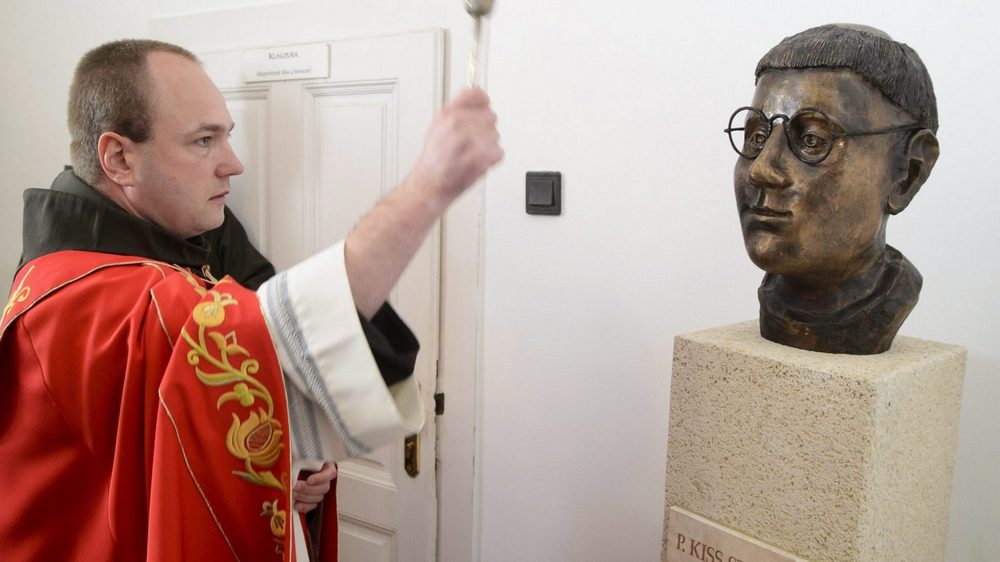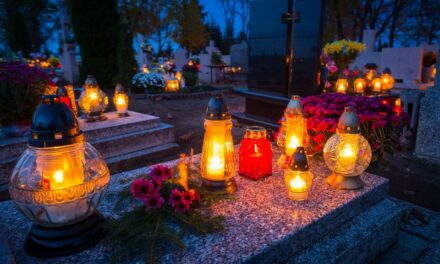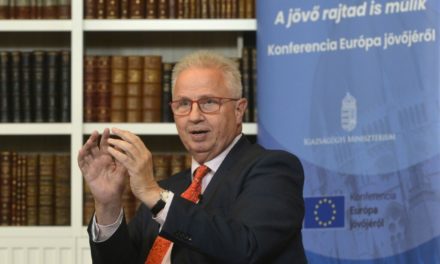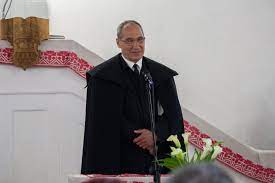The Bolsheviks, who came to power in Russia in 1917, murdered 18,000 priests in the first few years - moderator Gábor Péterfi, scientific associate of the Rubicon Institute, raised the question at the event entitled "Church Persecution during the Rákosi Dictatorship", asking the question: why did they see an enemy? 20th century totalitarian dictatorships, both Nazism and Communism, in Christian communities?
Ms. Földváryné Földváry, Associate Professor of the Department of Church History at the Faculty of Religious Studies at the Károli Gáspár Reformed University - referring to the beginnings, when Christ said: "You will be persecuted for my name" - underlined that the persecution of the church in the 20th century is different from that of previous eras: while previously religions we could talk about the fight between, "in the 20th century, a persecution on an ideological basis takes place, which encloses the belief in God itself" . It is on this basis that he attacks the Christian religion. The totalitarian regimes therefore want to sweep religious faith out of communal existence and replace it with some other ideology of their own, he added.
Murderers creating murder cases
The researcher, who mainly deals with the era, explored the reasons for opposition to dictatorships and touched on the issue of Christian freedom. Living the faith according to Christian teaching means such an inner autonomy, such a level of freedom that practically puts a person outside the circle of power - and this turns him ab ovo into a persecuted religion against the dictatorship that tries to control everything.
When the Rákosi took part in the 1945 elections, tactically they represented a more restrained policy towards the church for a short time. The background for this was the church policy of the Soviet Union, which took a turn for the worse in 1943, among other things due to Tehran, and the fact that in the occupied territories, often only communities operating within the organization of the church survived the cataclysm of the war. In the short term, the authorities formed some kind of temporary cooperation with them, which at that time still concentrated on the Islamization of the coalition parties.
However, as early as April 1946, the Franciscan monk Father Kiss Szaléz was arrested, convicted and executed on trumped-up charges.
the essence of communist church politics in this period is to act against the most radical persons and groups.
In addition, on May 1, 1945, for example, the Lutheran pastor Gyula Csaba was murdered with horrible cruelty, taking revenge for 1919, so to speak. Mrs. Földváry reminded: what happened had something to do with the rapes committed by Soviet soldiers. The authorities connected the "case" with action against the Christian Democratic Youth Workers' Union, a successful organization founded by the Small Farmers' Party and Kiss Szaléz. The purpose of this concept trial is not only to exclude the church from power, but also to implicate it in a murder case, to make it morally obsolete.
A trial with a similar concept took place in the case of the Teréz körút murder in the summer of 1946, KALOT (National Board of Catholic Agrarian Youth Associations) was involved in it, and then, on the order of the Soviet head of the SZEB (Federal Inspection Committee), Interior Minister László Rajk disbanded Catholic youth associations such as scouting, "and the reformed youth associations are not doing better either, they get a communist commissar on their neck", reminded Mrs. Földváry. The association's autonomy and dealing with youth are therefore already under frontal attacks during the coalition era, he concluded.
Language set for stigma
The head of the department also touched on the issue of the language policy of the Communist Party, which - like Christian freedom - is also rarely discussed, and what kind of language set they create for themselves:
“he himself is the progressive; anyone who is not a communist is a reactionary; a reactionary can - let's take into account that we are now after the war - become a fascist in an instant; anyone who is a fascist is obviously also an anti-Semite"
- as it is "beautifully" depicted in the press of the time.
In fact, according to the logic of the church, everyone is an enemy of the people - József Révai is the main ideologist - and this already lays the groundwork for the frontal attack of 1948.
in Célkreszt presented during the Holiday Book Week - The Trial of József Mindszenty and the Dragging of the Chief Shepherds of the Soviet Bloc, is also connected to this attack . The volume loved by András Fejérdy and Wirthné Diera Bernadett was referred to by Mrs. Földváry several times. In connection with the international reception of the Mindszenty trial, he recalled: "it's hard to imagine this today, but during the trial there were mass demonstrations in Paris in his defense, and Mindszenty was on the front page of the most prestigious newspapers, The Times" .
Mrs. Földváryn pointed out that the same story was repeated with Archbishop Jozef Beran of Prague, a similar fate awaited him - and although under different circumstances, the Polish Church also suffered persecution. "Since communist politics wants to control all its citizens in all areas of life, sooner or later it comes into conflict with Christianity, which is a community-creating force," he said.
From venom injection to the "narrow way".
Stefan Wyszyński, the archbishop of Warsaw, is much more cautious with the authorities - yet, the Catholic Church has been exposed to the same persecution, during the evening Ms. Földváry repeatedly refuted the narrative that if Mindszenty was more willing to compromise, the fate of the church would be different.
Following the theme of the recently published volume, Mrs. Földváryné addressed the extreme anti-church atrocities and assassinations experienced in other states in the Carpathian Basin. Such was the case, for example, of the Greek Catholic priest Teodor Romzsa from Transcarpathia, who was taken half-dead to the Munkacs hospital, where a Soviet secret agent - a cleaning lady - killed him with a poison injection. Mrs. Földváryn also recalled the case of Imre Narancsik, a Hungarian reformed minister from Transcarpathia, who was arrested in 1946, and
he also talked about the Hungarian Reformed pastors who wrote a letter to Stalin, urging him not to turn against God.
Mrs. Földváryn explained how Mindszenty and the Lutheran Church, as well as Lajos Ordas and the Reformed Church, were dealt with - by various means - with the resignation of László Ravasz. He also recalled such amazing episodes as the "narrow road" theology developed by Bishop Albert Bereczky, who served the communists, which encouraged the Reformed to build socialism.
Executed out of gratitude
The researcher also pointed out that the church played a prominent role in the fact that there were very few popular judgments in the 1956 revolution. Despite this, for example, the Reformed pastor Lajos Gulyás, who prevented the execution of an ÁVH officer, was executed by János Kádár in 1957.
It was also said during the conversation:
The community-creating and sustaining power of the Christian churches in Hungary is broken when, after 1956, one million people are forced to leave their homes due to the violent expulsion of the Communist Party.
and for connecting to cities. Churches were no longer built in the housing estates.
The sustaining communities
Nevertheless, the Christian churches in Hungary survived the communist system - said Mrs. Földváryn, who answered the questions of those present and said: the silent religious resistance, the community of the congregations, the perseverance of some pastors, and the spirit that they maintained even in the darkest eras helped a lot in this anonymous believers and families, sometimes with "tea parties", sometimes with "family visits, preparation for confirmation", disguised as Christian communities.
Source: hirado.hu
Cover photo: Kálmán Peregrin, the order responsible for the beatification of the Franciscan martyrs, blesses the bust of the Franciscan martyr Kiss Szaléz (1904–1946) in the monastery of the order in Gyöngyös on May 10, 2014 (Photo: MTI/Péter Komka)












